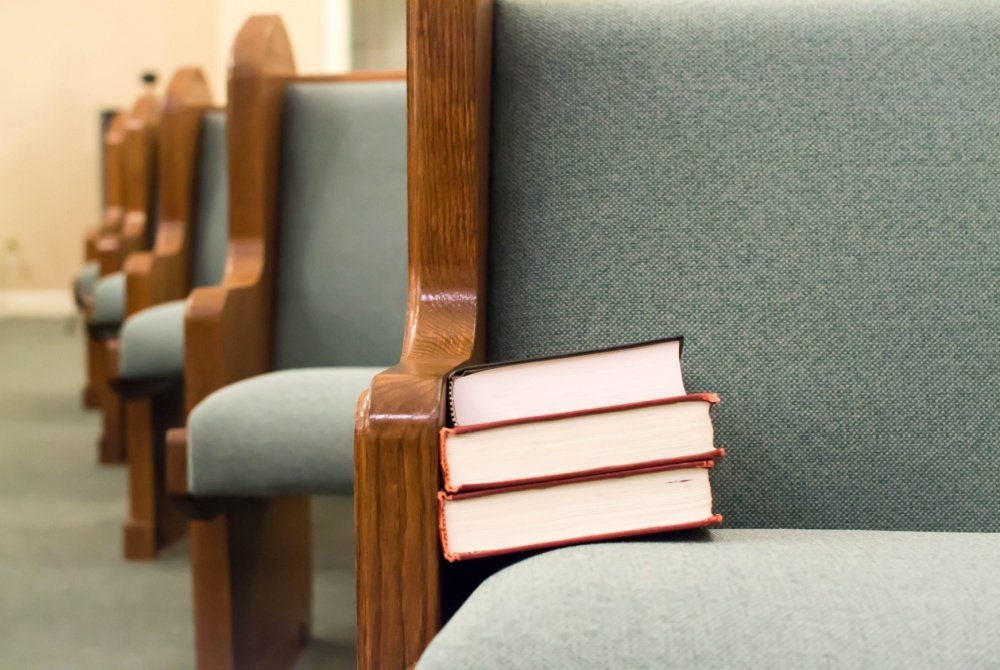
The William and Flora Hewlett Foundation’s recent commitment of $200,000 from its democracy program to support Religion News Service (RNS), a 90-year-old news outlet known for its fact-based coverage of the global impact of religion on all areas of life, shines a welcome light on the need for religious literacy in America at a time when faith groups and faith-based nonprofits are deeply intertwined with both the battle for democracy and with civic life in general. Just as grants through initiatives like Press Forward and others are seeking to boost democracy by supporting local journalism, Hewlett and other funders of RNS are helping to combat Americans’ potentially dangerous level of ignorance about religion and its role in public life.
Most people who follow current events even casually are no doubt aware of the role that Christian nationalism has played and still plays in right-wing politics. At the same time, there has been a rapid growth in the segment of the country’s population with no religious affiliation, and in coverage of that phenomenon.
Fewer are probably aware of just how large a role faith-based nonprofits play in American life: A study commissioned by Philanthropy for Active Civic Engagement (PACE) for its Faith In/And Democracy pilot project found that 15% — 23,778 — out of 160,000 nonprofits that weren’t involved in promoting religion were nonetheless faith-based groups and that they operated “in every major domain of the nonprofit sector” and provided “a vast array of secular products and services.” GivingUSA’s latest numbers on overall charitable giving in the U.S. showed that around 24% of total contributions went to “religion” in 2023 – by far the largest category.
Despite all that, the PACE study also found “a general lack of literacy regarding religion” in America — results backed up by the Pew Research Center. According to a 2019 Pew poll, while most Americans are familiar with “some” of the basics of Christianity and the Bible, “far fewer U.S. adults are able to correctly answer factual questions about Judaism, Buddhism and Hinduism,” and only 27% knew that the U.S. Constitution does not require a religious test for holding public office.
Ali Noorani, who directs Hewlett’s U.S. Democracy program, said that the Religion News Service grant was part of its overall work supporting a wide range of media outlets. “We think it’s critical that all people in the U.S. have a broad range of trusted, reliable sources to get information about democracy, elections and the concerns facing our shared political community,” Noorani said. The goal of the RNS grant, she said, is to “increase understanding of faith communities in the U.S and issues related to democracy and governance.”
While May’s announcement marks the first time Hewlett has supported Religion News Service, this isn’t the first faith-focused outlet that has received funding from its democracy pot. Christianity Today received $200,000 in both 2022 and 2023 to report on U.S. elections, and Sojourners, a faith-based social justice nonprofit that manages an independent print and online publication focused on faith, culture and politics, received general operating support grants of $200,000 each during those years. Hewlett’s support for Press Forward, a $500 million, multifunder initiative that debuted last year and works to build local news organizations, comes from the foundation’s Special Projects fund. The Religion News Service grant was made to the Religion News Foundation, which owns and operates the outlet.
A diversity of funders
Religion News Service receives roughly 75% of its support from institutional funders, according to a four-year average calculated for IP by RNS Publisher and CEO Deborah Caldwell. In addition to the recent Hewlett grant, RNS supporters include the Lilly Endowment — which has backed RNS with more than $31 million since 2000 — the Pulitzer Center, the Foundation for Religious Literacy, and the Institute for Nonprofit News.
This diversity of funders is no accident: Caldwell said that since she joined RNS in 2020, one of her goals has been to secure support from journalism and “democracy-forward” funders in addition to foundations that are focused on increasing religious literacy. RNS’ individual donor program is only a few years old, she said, but those donors have been positive about the outlet’s fact-based coverage of religion and politics.
After starting its life as a news service providing articles to other outlets, Caldwell said, RNS has been evolving to serve readers more directly since roughly 2015. The Washington Post has a subscription to run RNS articles, and RNS pieces are published in both the Associated Press and the online outlet The Conversation, thanks to support from Lilly.
Telling the larger stories
The importance of fact-based, objective reporting about religion is obvious, particularly in an environment in which funders are pushing back against disinformation and resourcing efforts to bridge civic divides. While backing RNS and other faith-focused news outlets, such as Christianity Today, may not be the most reached-for tool in that toolbox, the depth and experience of niche and topic-specific sites is unbeatable.
Religion News Service was founded in the 1930s “in a time very similar to today,” Caldwell said. Its staff includes such reporters as Adelle Banks, who has been on staff for 29 years, alongside “other very senior reporters who really understand this terrain.” While large news organizations do independent coverage of faith-related topics, “they can’t cover the waterfront of religion because they have other things to cover,” Caldwell said. “They do it well when they do it. They just don’t do it enough.”
The religious landscape in the U.S. is far larger and more complex than right-wing pundits and activists would like citizens to believe. America’s religious people run the gamut from liberal to conservative, and adhere to a wide range of faith traditions. In an environment where some factions are doing their best to use faith as a wedge to further polarize and drive us apart, funders looking to bring the country together may want to consider backing outlets that specialize in telling religion’s larger stories.
